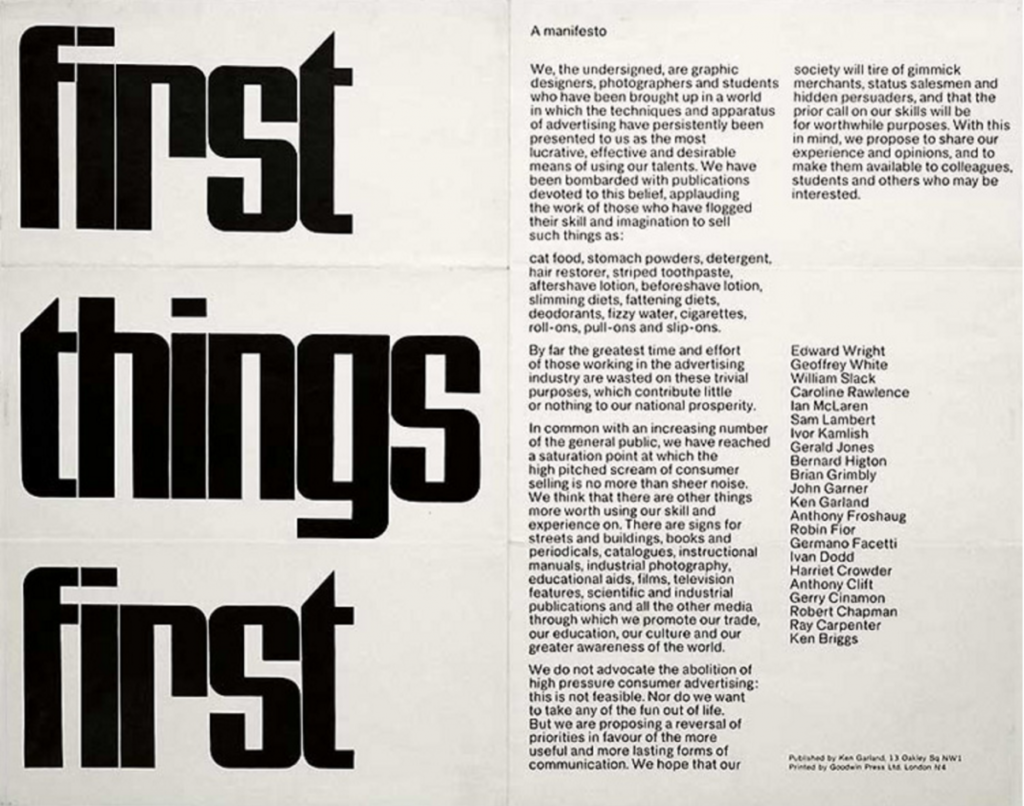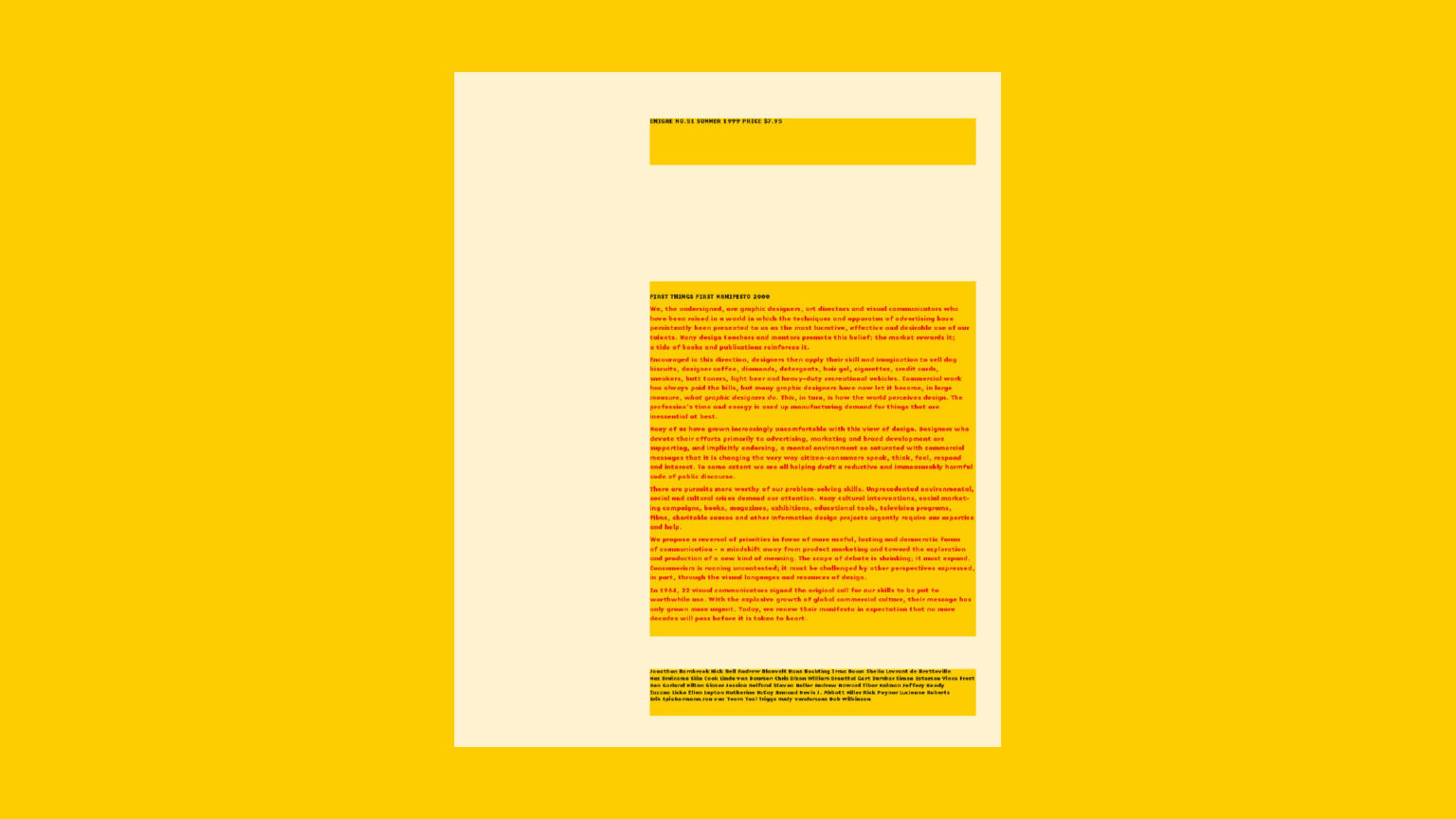Originally released in 1964, the First Things First manifesto rallied against design’s role in consumerism and called upon designers to be more humanist in their approach to their practice.

Adbusters updated the manifesto in 1999, restarting the conversation about priorities in the graphic design profession and education. First Things First 2000, signed by many influential designers of the time, argues that design is not value-free, that designers should be critical of the values of the projects and clients that they take on. In today’s political and social climate, these writings are just as important now, as they were in 1999 and in 1964.
First Things First 2000
Simultaneously published autumn of 1999 in Adbusters (Canada), Emigre (Issue 51) and AIGA Journal of Graphic Design (United States), Eye magazine no. 33 vol. 8, Autumn 1999, Blueprint (Britain) and Items (Netherlands).
Encouraged in this direction, designers then apply their skill and imagination to sell dog biscuits, designer coffee, diamonds, detergents, hair gel, cigarettes, credit cards, sneakers, butt toners, light beer and heavy-duty recreational vehicles. Commercial work has always paid the bills, but many graphic designers have now let it become, in large measure, what graphic designers do. This, in turn, is how the world perceives design. The profession’s time and energy is used up manufacturing demand for things that are inessential at best.
Many of us have grown increasingly uncomfortable with this view of design. Designers who devote their efforts primarily to advertising, marketing and brand development are supporting, and implicitly endorsing, a mental environment so saturated with commercial messages that it is changing the very way citizen-consumers speak, think, feel, respond and interact. To some extent we are all helping draft a reductive and immeasurably harmful code of public discourse.
There are pursuits more worthy of our problem-solving skills. Unprecedented environmental, social and cultural crises demand our attention. Many cultural interventions, social marketing campaigns, books, magazines, exhibitions, educational tools, television programmes, films, charitable causes and other information design projects urgently require our expertise and help.
We propose a reversal of priorities in favour of more useful, lasting and democratic forms of communication – a mindshift away from product marketing and toward the exploration and production of a new kind of meaning. The scope of debate is shrinking; it must expand. Consumerism is running uncontested; it must be challenged by other perspectives expressed, in part, through the visual languages and resources of design.
In 1964, 22 visual communicators signed the original call for our skills to be put to worthwhile use. With the explosive growth of global commercial culture, their message has only grown more urgent. Today, we renew their manifesto in expectation that no more decades will pass before it is taken to heart.
—
Jonathan Barnbrook
Nick Bell
Andrew Blauvelt
Hans Bockting
Irma Boom
Sheila Levrant de Bretteville
Max Bruinsma
Siân Cook
Linda van Deursen
Chris Dixon
William Drenttel
Gert Dumbar
Simon Esterson
Vince Frost
Ken Garland
Milton Glaser
Jessica Helfand
Steven Heller
Andrew Howard
Tibor Kalman
Jeffery Keedy
Zuzana Licko
Ellen Lupton
Katherine McCoy
Armand Mevis
J. Abbott Miller
Rick Poynor
Lucienne Roberts
Erik Spiekermann
Jan van Toorn
Teal Triggs
Rudy VanderLans
Bob Wilkinson


